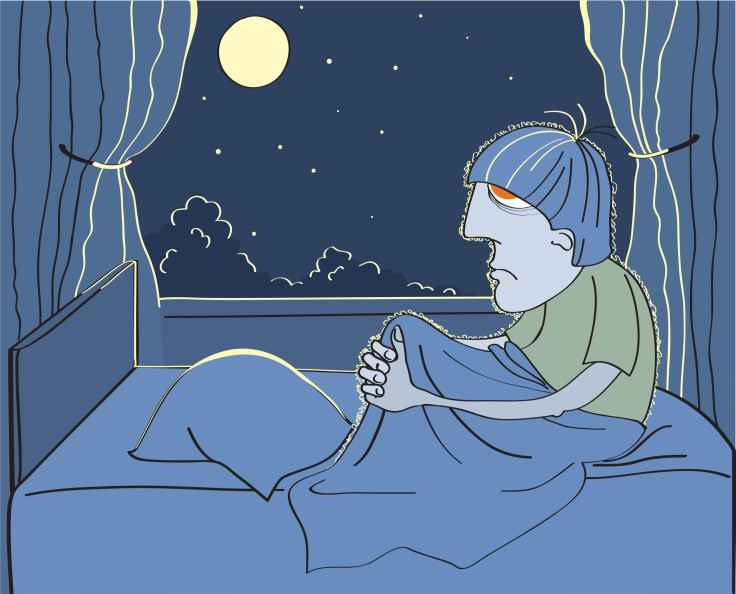Insomnia And Impaired Sleep Can Make You More Sensitive To Pain

There are few things more blissful than lying down on a soft, cozy bed and drifting off to sleep after a long day’s work; or more infuriating when your brain doesn’t seem capable of shutting down for the night. In the United States, an estimated 50 to 70 million suffer from sleep disorders, as per the Centers for Disease Control and Prevention, which has labeled insufficient sleep a public health epidemic. More than just causing baggy eyes or a grouchy morning, though, insomnia also might make you less able to take a punch, as reported by Norwegian scientists in the journal Pain.
Teasing out data from a large population study of more than 10,400 Norwegians, the authors specifically keyed in on the participants’ pain tolerance, as measured by sticking one’s hand in a bucket of cold water and seeing how long they could leave it there, up to a maximum of 106 seconds. They then looked back at these participants’ self-reporting of sleep patterns, and found a significant association of lowered tolerance to levels of insomnia. 42 percent of insomniacs took their hand out early, compared with 31 percent of healthy sleepers. And the more severe and frequent their insomnia, the less pain participants could stand, the authors found, even after adjusting for demographical factors and levels of emotional distress.
“We found that all sleep parameters, except sleep duration, were significantly associated with reduced pain tolerance,” the authors wrote, noting that while connected, insomnia isn’t necessarily the same as sleeping less. While an insomniac might end up sleeping as much as the next person, it’s the difficulty in getting to and maintaining that sleep that proves to be the problem. In other words, voluntarily staying awake to binge-watch the next episode of Breaking Bad isn’t the same, health wise, as tossing and turning in bed.
Perhaps more significantly, insomnia was strongly connected to chronic pain, with those who reported both chronic pain and insomnia faring much worse than someone who only reported one or the other, “We also found a synergistic interaction effect on pain tolerance when combining insomnia and chronic pain,” the authors explained.
While other research has linked sleep impairment to health issues like memory loss and motor function, this is the first study to take a broader population-level look at the connection between sleep and pain, and the researchers advocate that more work be done in understanding just how the two are linked. One possibility mentioned in the paper suggests that dopamine levels, important in regulating sleep, might in turn be affected by pain, though emotional distress can also play a role when it comes to both sleep quality and pain sensitivity.
Regardless of why, the authors hope that their research can shine a light on these increasingly more frequent ailments (Lead author Dr. Børge Sivertsen is affiliated with the Norwegian Institute of Public Health). “As comorbid sleep problems and pain have been linked to elevated disability, the need to improve sleep among patients with chronic pain, and vice versa, is evident,” they wrote.
Source: Sivertsen B, Lallukka T, Petrie K, et al.Sleep and Pain Sensitivity in Adults. Pain. 2015



























